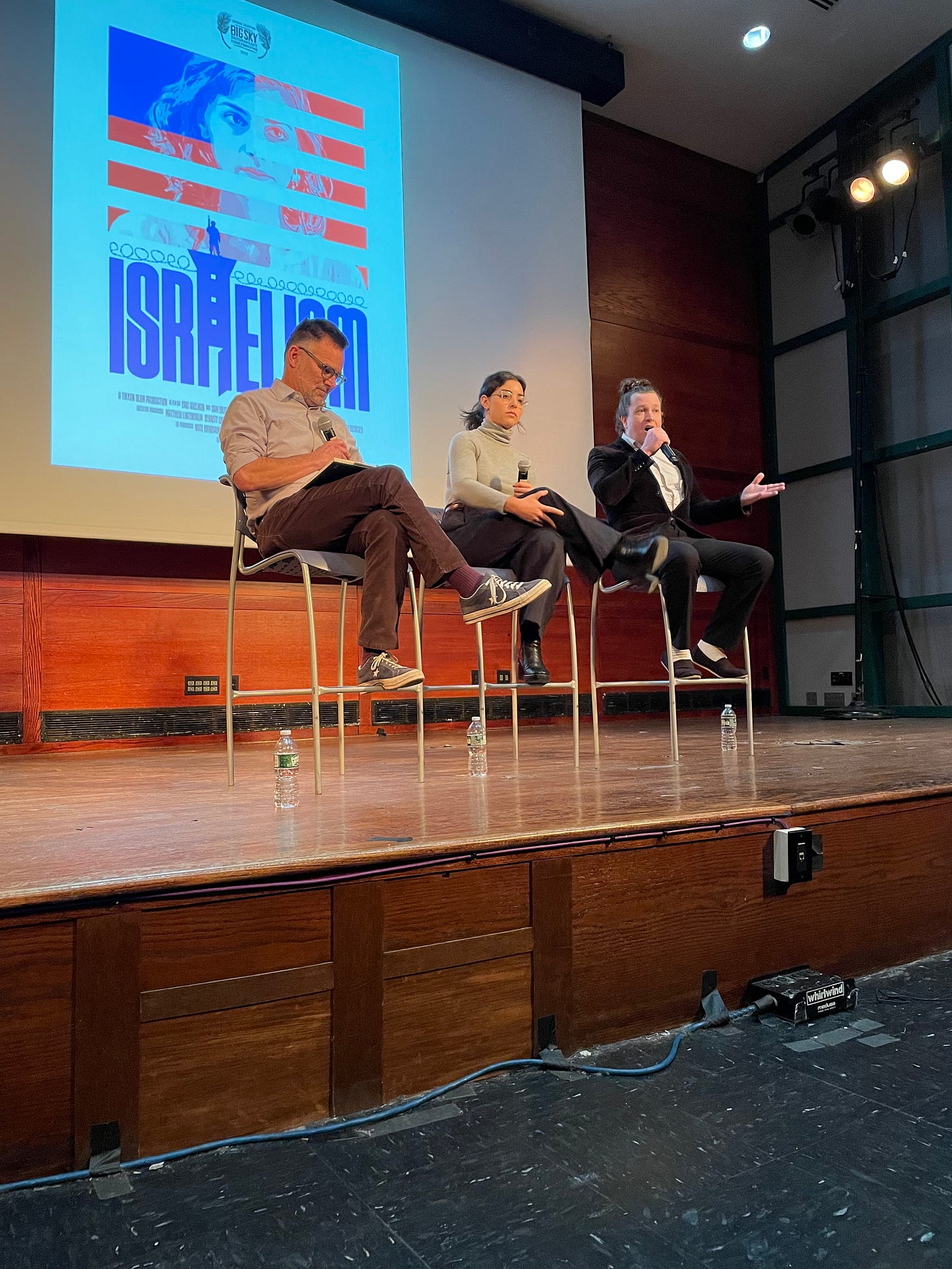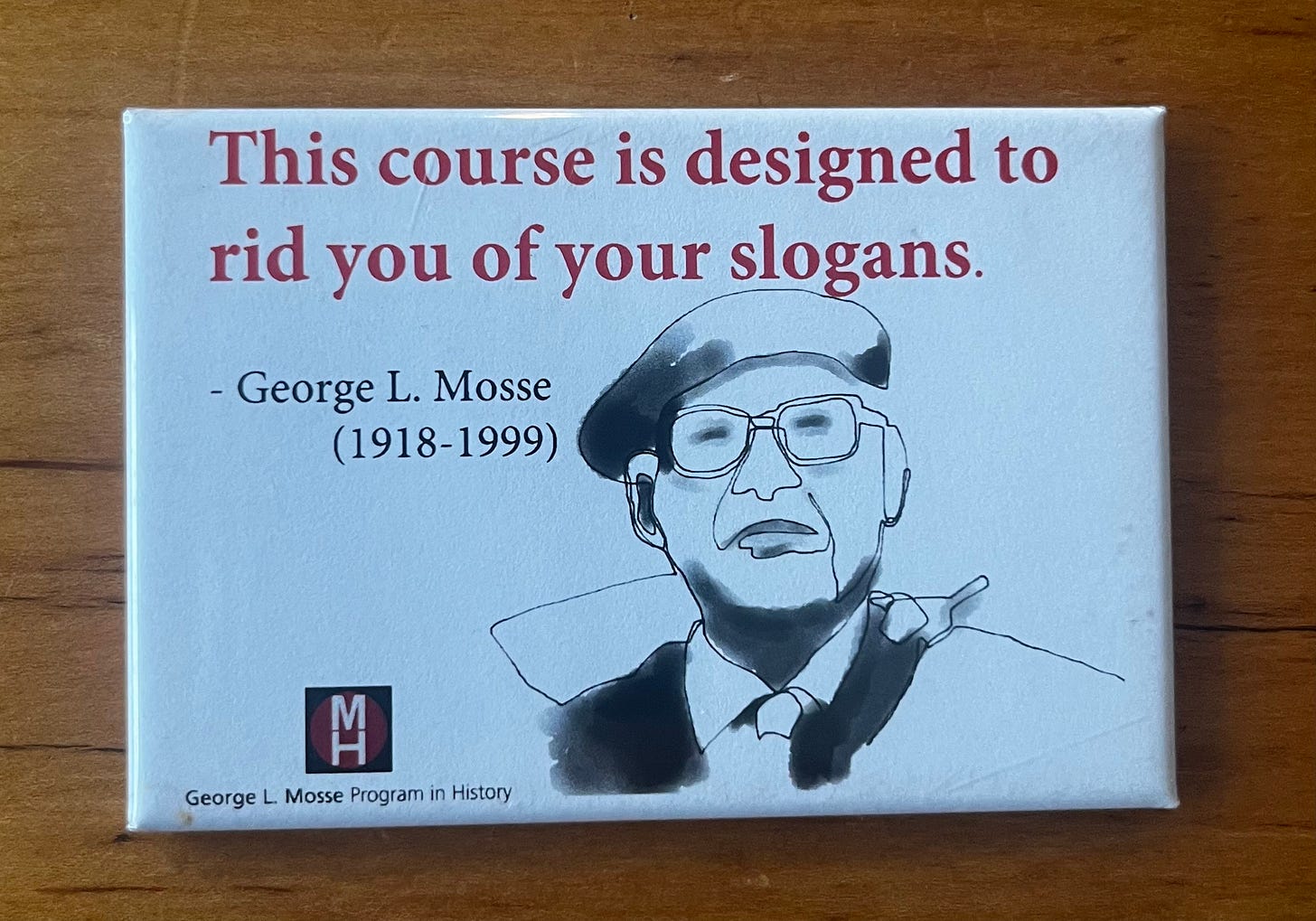A Difficult and Necessary Truth
During the fall and spring semesters of 2016-2017, I taught a course at City College entitled “Jews and Social Justice.” The majority of my students both semesters were non-Jewish, Black and Latino New Yorkers whose interest in Jewish studies derived from living in New York and certainly knowing about Jews but not having any real substantive interactions with them. I admired their willingness to indulge their curiosity, read, talk, ask complex questions, and grow. Those semesters were some of the most enjoyable teaching experiences of my career as a rabbi and educator; I cherish being in touch with some of those students to this day.
My devotion to public education — including K-12 and university level — is foundational to who I am, how I was raised, and how my children have been educated. Both in Wisconsin and New York, my family has produced graduates and teachers from public universities at all levels — I continue to be inspired by new generations of Americans find their paths to success in the sphere of affordable public education. A few years ago, I created a scholarship fund in the Jewish studies department in Madison for topics related to Jews and social justice. Awardees have come from many backgrounds. To quote the Malbim from a different context altogether, “It’s not about where you come from but about where you’re going.”
I say this all by way of introduction because I know, from the bottom of my heart, that the inhospitable, rude and disruptive reception I received last week at Hunter College when trying to participate in a panel about the film, Israelism, was not a reflection of the vast majority of students and faculty at Hunter or any school in the CUNY system. Nevertheless, it was a bruising and disturbing experience to walk into a room and not be given an opportunity to ask a single question of the film’s creators without being heckled, interrupted, and yelled at by students and faculty, in a blinding rage of their own certainty.
The context of this screening might be familiar to you. The film department at Hunter planned to screen it, but due to the film’s particular take on the Israeli-Palestinian conflict — and especially in these enflamed days of war, mass murder and catastrophic civilian death tolls resulting in this human catastrophe for Israelis and Palestinians — the university chose not to screen the film. A backlash ensued and the university reinstated the screening. I was invited in to interview the filmmakers in an attempt to model dialogue, discourse and civil disagreement.
In my career as a rabbi in New York I was always committed to this approach. During my years at Congregation Beth Elohim in Brooklyn, I was criticized by one side or another for inviting: historians Rashid Khalidi (Palestinian) and Benny Morris (Israeli); career state department officials Rob Malley (left) and Elliot Abrams (right); Israeli Ambassador Michael Oren; members of Peace Now, Rabbis for Human Rights and B’Tselem. On annual trips to Israel, we always met Palestinian rights activists, visited border communities and learned about the security fence. The educational value at the core of these experiences was to embrace complexity in education, not to elide it with propaganda, platitudes and protest.
As I was taught by my mentor George L. Mosse at UW-Madison, “This course is designed to rid you of your slogans.” Slogans, chants, disruptions and civil disobedience are perfectly valid in the street, but the classroom is for learning. That’s a hard line for me; not so for the large number of students and faculty whose disruptions this past Tuesday evening rendered meaningless any chance for learning to occur. Neither the filmmakers nor faculty did anything to stop protestations of my attempts to question the film’s claims and editorial choices. I was lambasted for being a rabbi who dared to dissent from the only accepted line of reasoning that the film and its protagonists had to offer: Israeli and Zionist American Jews are solely responsible for the Israeli-Palestinian conflict.
The event was sponsored by the film department, after all. What film is without its critics?
Here are the questions I unsuccessfully tried to ask the filmmakers at the event, and was instead accused by students and faculty of being racist, irrelevant, without the right to be there, and an apologist for genocide:
What is your definition of Zionism?
You refer to 1948 as “when the war happened” and the origin of ethnic cleansing, but chose not to mention the 1947 U.N. Partition Plan, the rejection of which by Arab states contributed to the start of Israel’s War of Independence that resulted in the origins of the Palestinian Refugee Crisis. Why?
Your film stated that “in 1967, Israel managed to complete its takeover of the West Bank and Gaza” but you don’t mention the 6-Day War in which Israel was again attacked by five Arab nations seeking to eliminate Israel “from the river to the sea.” Why?
You showed an image of the 2001 Sbarro Pizzeria bombing without mentioning the Second Intifada that resulted in more than 1,000 Israeli deaths by Palestinian suicide bombers and more than 3,000 Palestinian deaths by Israeli soldiers. This led to the destruction of the Camp David Peace Accords and the security barrier cutting off the West Bank from Israel, severely limiting Palestinians’ free movement. Why?
More than 70% of American Jews voted for Joe Biden in the 2020 election, yet you focused on Donald Trump’s rabid support of Bibi. Why?
When addressing antisemitism, you had stock footage of white supremacists from the Right and Nazis marching in Charlottesville and elsewhere, but no mention of antisemitism on the Left nor the Hamas Charter that explicitly calls for the killing of all Jews in Israel, not to mention the obscene call for the genocide of Jews in marches around the world protesting Israel’s war against Hamas. Why?
Zimmerman claims to have been lied to throughout her K-12 Jewish education and painted Hillel as a home for only pro-Israel advocacy on campus. Why didn’t you interview a teacher from your school in Los Angeles or a Hillel professional at UC Berkeley where you were in school?
These fraught times, with deep divisions already roiling campuses on matters of identity, merit, admissions and race, have seemed to galvanize almost entirely now on the Israeli-Palestinian conflict. To scholars of antisemitism, this is familiar territory. Through the lens of understanding antisemitism, the Jew stands for all that is wrong in the world: in medieval and early modern Europe, he is the antichrist; in modernity, he is both Capitalist and Bolshevik; and in so much campus discourse today, the Jew is a Zionist colonizer.
Had I not been disrupted, I might have had a chance to condemn the government of Benjamin Netanyahu and his criminal settler enterprise, which I have persistently done; I might have had a chance to articulate my position of ceasefire twinned with a full return of hostages, the removal of Hamas and the removal of Netanyahu’s government; I might have had a chance to state my belief that most Israelis and most Palestinians still prefer peace and coexistence to war, bloodshed and mass death.
As I was leaving the screening, one Somali and three American students approached me and thanked me for being there. Two Palestinian girls shouted at me that I was a “loser.” Despite it all, I would do it again. And again.
Please hear my plea: We are all torn to shreds by this intolerably difficult war. We need to keep talking, keep learning, keep stretching limits of understanding in order to hear and even embrace the pain of the other. Our civil societies will otherwise collapse under the weight of shuttered intolerance and hatred. If someone asks to talk to you, say yes, even if you’re scared. What do the Buddhists say? “From mud blooms the lotus flower.” Go to difficult places with each other — but be kind.
We Jews have a phrase from the Talmud, “כל ישראל ערבים זה בזה” translated as “all Jews are responsible for one another.” Given how inextricably bound Israelis and Palestinians are and will remain in this land that both call home, I end with the thought that “all Israel and Palestine are responsible for one another.” This difficult and necessary truth is ours to hold.




To my rabbi and dear friend. I am `so sorry you had to go through this although I'm not really surprised especially with what's going on in the world these days. As one of the principal organizers of many of the events you listed, I know that in your days at CBE, we made ourselves a forum for speakers that few American congregations would have hosted. In fact, I usually couldn't even get a response from local synagogues that I reached out to cosponsor. Having not seen the film yet, I don't have an opinion on the merits of it, although I wouldn't be surprised to find that I agreed with some or a lot of it. That's not the point here. It would have been an interesting and useful conversation and might have produced a lot more common ground than these students and faculity[!] can fathom, which is a shame.
Dear Rabbi, Andy, yes, we need to learn how to hold and honor two different narratives. And we need to learn how to speak about both Respectfully and compassionately. Thank you for reminding us. And please, stay safe.